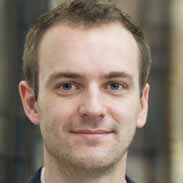Cell Mediated Immunity II – Flashcards
Unlock all answers in this set
Unlock answers
Three classes of effector T cells to deal with multiple types of pathogens. |
CD8:Kill infected cells displaying foreign Ag, typically virus infected cells.
CD4 (TH1): Stimulate macrophages to kill intracellular pathogens.
CD4 (TH2): Stimulate antibody production to facilitate elimination of extracellular pathogens. |
Th1 cells can activate macrophages at the site of infection. |
Effects of Macrophages:
MHC Class II Increases
TNF Receptors Increase
Oxygen Radicals Increase
Nitric Oxide Increases
These changes activate the macrophages to become highly microbicidal. Important because so many pathogens can replicate in macrophage vessicles. |
natural killer (NK) cells |
Activated by interferons – thought to act primarily during the early stage of infection, but can influence adaptive responses. Inhibited by MHC Molecules Stimulation of NK cells is not antigen specific – it is mediated by an ‘activation receptor’.
Interaction with any MHC molecule (not specific) inhibits the cytotoxic activity of NK cells.
|
Two Reasons why NKT are Inhibited by MHC |
Two reasons :
a. prevents killing of host cells, because they typically express MHC
b. enables killing of cells that don’t express MHC -some viruses downregulate MHC expression as a means to avoid detection by T cells |
Primary T cell responses to most infections |
Three phases :
1. activation and expansion – 100 to 50,000-fold expansion 2. death (“AICD”) – 95% of cells die 3. memory (stability) – cells maintained at low frequency |
Secondary T cell responses to most infections |
Compared to primary responses, memory responses are :
1. Higher frequency of antigen-specific cells (~1000x) 2. Faster (due to changes in gene expression) 3. Develop effector cells more efficiently (ie, requires lower Ag doses) |



